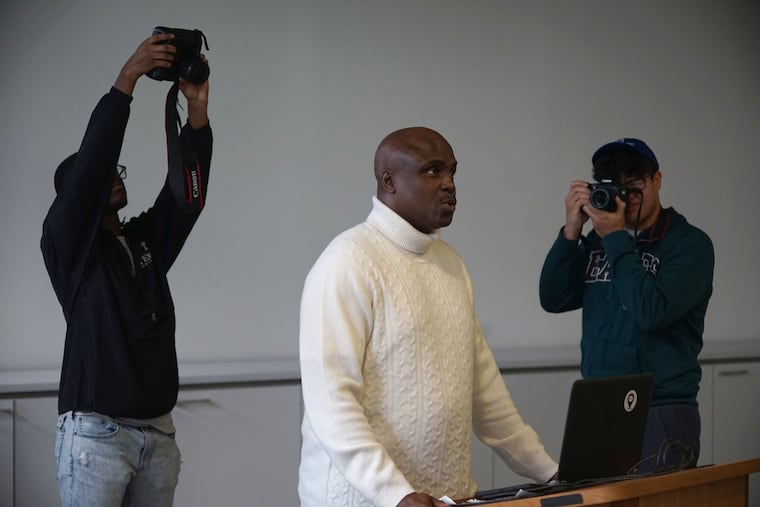I’m The Inquirer’s only black male news columnist. That speaks to a larger problem. | Solomon Jones
American media is one of the institutions that teaches racism to the populace.

I am the only black male news columnist at The Inquirer, and I am not on staff. I am technically a freelancer.
That’s a problem, but in my view, it’s not a problem that exists in a vacuum. Rather, it is a byproduct of the blinding whiteness that characterizes the culture of The Inquirer in particular, and major media outlets in general.
It is whiteness — the structures and social phenomena that produce white privilege — that causes outlets like The Inquirer to publish racially offensive material. And I truly believe it is not always intentional. However, when your editors are overwhelmingly white, when you are self-congratulatory in your white liberalism, and when you routinely ignore the input of black people, you end up with headlines like “Buildings Matter, Too.”
» READ MORE: Live coverage of Tuesday's protests: Mayor Kenney promises police reform
That headline, featured on a column about damage to buildings from the ongoing uprising against police brutality, was offensive not just because it equated buildings with human lives. It was offensive because it misappropriated the Black Lives Matter mantra during a time when African Americans and our allies are in the streets protesting the killing of black people by police.
For white people, such a headline is a mistake that can be repaired with a heartfelt apology and the removal of a sacrificial lamb. But the resignation of Executive Editor and Vice President Stan Wischnowski following an insensitive headline does not fix the structural race problems that exist at The Inquirer. Even when Wischnowski leaves, there are very few black news editors in the pipeline, none in a position to replace him.
That is not a function of the moment. It is the result of years of failing to hire and groom black reporters for leadership. With few black reporters, there are few black editors. And while the paper does have a black deputy news editor, most black editors exist in spaces like food and sports. Therefore, they are not in a position to shape coverage of issues like black people dying at the hands of police.
And before I go on, let me say this: I’m not talking about hiring and promoting journalists of color, or journalists from marginalized communities. I’m talking about hiring and promoting black people. Black people who see African Americans as human beings with stories to be told rather than characters with drama to be exploited.
To be sure, The Inquirer has tried to be sensitive to racial issues. In fact, I write about race because a white editor realized a black voice was needed on the issue and asked me to be that voice. The paper has also partnered with black media entities like WURD Radio to amplify black issues. At my request, The Inquirer has served as a media sponsor for an annual community event that takes place in mostly black West Oak Lane. These steps are well-meaning, but they are clearly not enough.
For too long, I’ve watched my white media colleagues at numerous outlets pat themselves on the back for telling black stories from white points of view. I’ve watched them confuse their denunciation of racist statements with a true understanding of structural racism. I’ve seen them condescendingly dismiss the experiences of black people who lived through the crack era in Philadelphia when it comes to the issue of safe injection sites. I’ve watched The Inquirer change the paper’s language on addiction when statistics showed that those suffering drug overdoses were mostly white.
The reality is this: When major media outlets like The Inquirer hire mostly white journalists and editors while talking ad nauseam about newsroom diversity, they not only fail black readers. They perpetuate the belief that whites are more qualified than blacks to document what happens in our society.
This is not just about The Inquirer, however. It’s about the stifling of black voices throughout media. At the Pittsburgh Post-Gazette, for example, one of the paper’s few black reporters was barred from covering protests connected to the killing of George Floyd after she posted a tweet pointing out the hypocrisy around coverage of looters. Later, a black photographer was taken off protest coverage, according to that reporter and the paper’s union.
To be sure, American media has made some strides over the decades. But when I go home to the black Philadelphia community where I live, people tell me that they see the media as a tool of propaganda and an enemy of black people.
In many ways, they’re right. Through stories it tells, American media is one of the institutions that teaches racism to the populace. So while apologies are nice, true change will require a simple but radical solution.
Hire black people, promote black people, and give them the power to change the narrative.